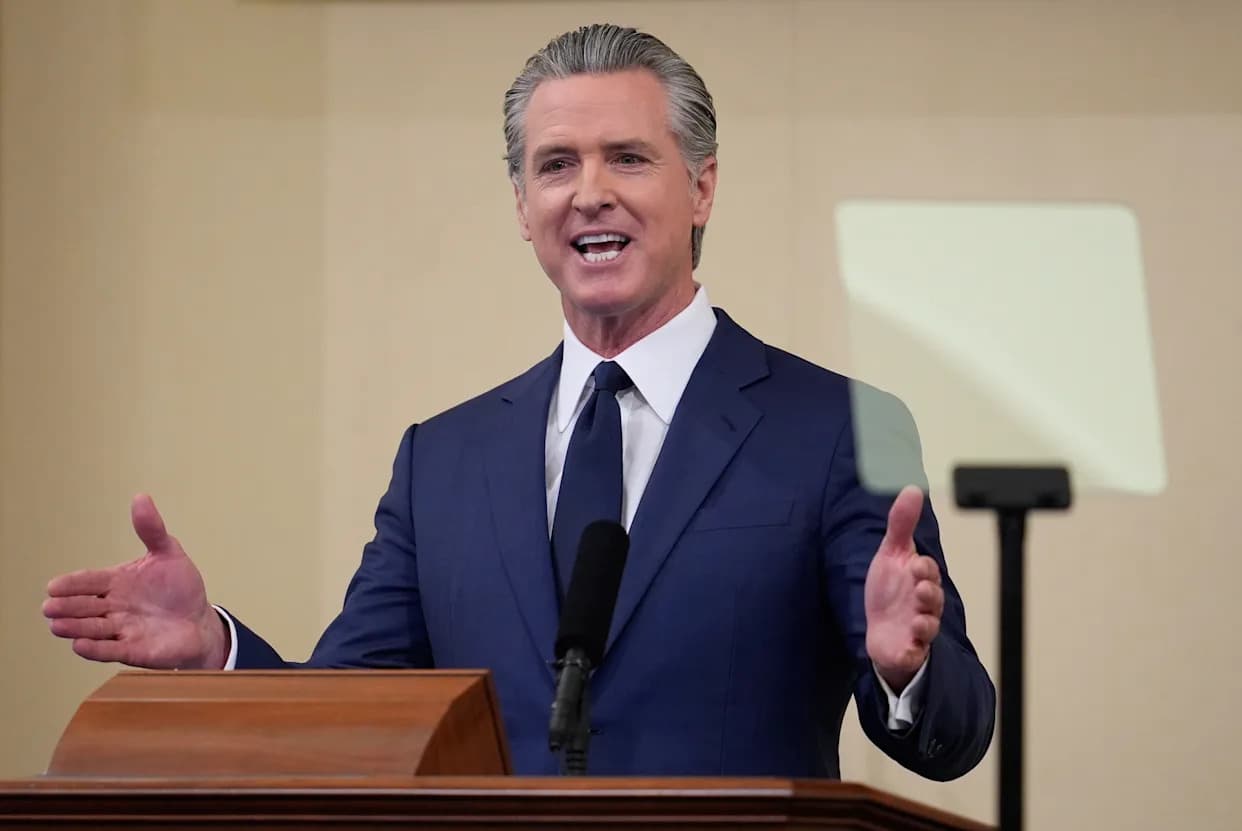Overview: CBS News California interviewed the 11 leading gubernatorial candidates about ICE cooperation for convicted undocumented offenders and access to state-funded health care for people pursuing asylum or residency. Candidates generally split along partisan and ideological lines: many Democrats tie cooperation to conviction and preserve exceptions for violent offenders, while several Republicans and the Green candidate favor broader cooperation or outright rejection of it. On health care, proposals range from full coverage and Medi-Cal expansion to conditional, budget-dependent limits; many noted emergency care is already provided. Voters can view side-by-side clips to compare both positions and candidates' responses.
California 2026: Where Gubernatorial Candidates Stand on ICE Cooperation and Health Care for Undocumented Immigrants

California 2026: ICE cooperation and health care for undocumented immigrants — candidate positions
As California voters prepare for the 2026 governor’s race, immigration policy remains a top issue. Over several weeks in September, CBS News California Investigates correspondent Julie Watts interviewed the leading candidates about two frequently misunderstood areas of state policy: cooperation with U.S. Immigration and Customs Enforcement (ICE) for convicted undocumented offenders, and access to state-funded health care for people pursuing asylum or residency.
Context: SB 54 and the sanctuary-state framework
Senate Bill 54 (2017) limits when state and local law enforcement may assist federal immigration authorities by restricting holds, transfers and notifications to ICE. The law aims to separate local policing from federal immigration enforcement and to protect due process.
Where candidates stand on ICE cooperation for convicted, undocumented offenders
Xavier Becerra (D): As attorney general he defended SB 54 in court and says the state cannot be compelled to perform federal immigration enforcement. He noted California notifies ICE of people in custody but generally cannot "hold them" after sentence without crossing into federal detention.
Steve Hilton (R): Supports full cooperation with ICE "100 percent," arguing federal immigration laws should be enforced to reduce community risk and that SB 54 is wrong.
Chad Bianco (R): A Riverside County sheriff who favors broader cooperation and is suing to change or end sanctuary protections; says those here illegally who commit crimes and are jailed should be deported, with current practice typically occurring after conviction.
Leo Zacky (R): Argues sheriffs have a constitutional duty to work with ICE, supporting cooperation for those arrested and for convicted offenders in CDCR custody.
Stephen J. Cloobeck (D): Draws the line at conviction—people should receive their day in court and convicted undocumented offenders should be removed.
Antonio Villaraigosa (D): Notes state law already allows cooperation for violent and serious felons and supports working with federal authorities in those cases.
Katie Porter (D): Says current policy is appropriate, pointing to exceptions for violent crimes; cooperation depends on conviction.
Tony Thurmond (D): Believes law enforcement should work with ICE when a judicial warrant exists and that state agencies sometimes should assist federal enforcement.
Ian Calderon (D): Supports consequences for undocumented people who commit crimes and favors coordination with federal authorities, while warning against demonizing immigrants.
Betty Yee (D): Supports allowing CDCR to hold convicted individuals until ICE can take custody for that specific population of convicted criminals.
Butch Ware (Green): Opposes ICE cooperation entirely, even for convicted offenders, arguing against expanding federal police powers.
Where candidates stand on health care access for people pursuing asylum or residency
The candidates split again on whether people who enter through legal crossings and pursue asylum or residency should receive state-funded health care.
Xavier Becerra (D): Says current law provides access to care and warns that fear stirred by national politics has deterred eligible families from seeking routine medical help.
Betty Yee (D): Supports a basic level of health care for this population and cautions that leaving people uninsured increases public-health risks in emergencies.
Tony Thurmond (D): Fully supports health coverage for undocumented immigrants and has backed such expansions in the past, noting uninsured patients often rely on costly emergency care.
Antonio Villaraigosa (D): Observes California already covers emergency care and argues preventative coverage (like Medi-Cal) could be more cost-effective than repeated emergency-room spending.
Butch Ware (Green): Advocates for free or affordable health care for all residents and says the state can reallocate funds to cover it.
Katie Porter (D): Supports Medi-Cal coverage for asylees and people actively pursuing asylum or residency as appropriate policy.
Steve Hilton (R): Says everyone should have access to health care and decries a "barbaric" approach, while noting other states limit coverage more strictly.
Ian Calderon (D) and Stephen J. Cloobeck (D): Both condition expanded coverage on fiscal capacity—prioritizing citizens and permanent residents first and requiring a balanced budget before major expansions.
Chad Bianco (R): Calls the issue a "tough question," acknowledges asylum-seekers often fit under current law, but says recipients should be working if they receive state-funded benefits.
Leo Zacky (R): Supports some level of services for those legally moving through asylum or residency processes but opposes unconditional, full coverage.
Why this matters
These interviews highlight clear ideological divides on two technical but consequential policies: when California should cooperate with ICE in criminal cases and how broadly the state should extend publicly funded health care to undocumented people pursuing legal status. Voters can weigh these stances as part of the broader 2026 gubernatorial contest.
Watch full answers: CBS News California is publishing side-by-side clips so voters can compare not only candidates' positions but how they respond to follow-up questions. Full, unedited interviews are available on the CBS News California Investigates playlist.
Help us improve.


































